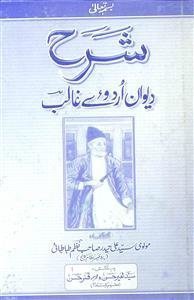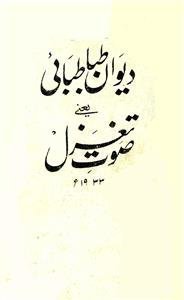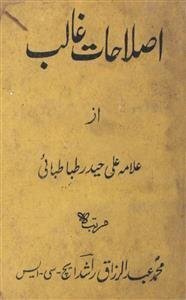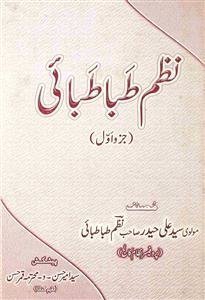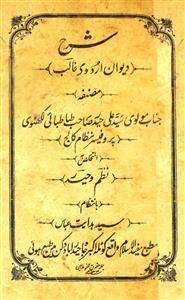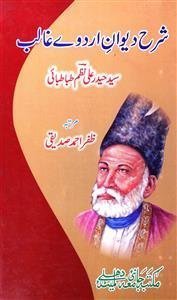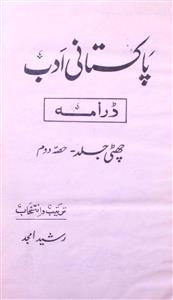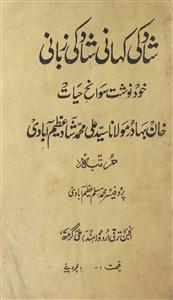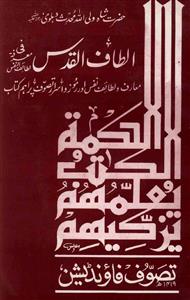 For any query/comment related to this ebook, please contact us at haidar.ali@rekhta.org
For any query/comment related to this ebook, please contact us at haidar.ali@rekhta.org
About The Book
غالبؔ کا نام اور کلام محتاج تعارف نہیں۔اردو زبان و ادب کے عظیم شاعر غالب اور کلام غالب ہمہ جہت خصوصیات کی وجہ سے ہر دور میں توجہ کا مرکز رہا ہے۔غالب اپنے ذاتی بحران کی حدود سے نکل کر عالمی سطح کے بحران تک پہنچتے ہیں۔جہاں ثقافتی، سماجی ،اقتصادی اور سیاسی انتشار ہے۔چناچہ ان کے کلام میں ذاتی ،ملکی موضوعات کے ساتھ ساتھ عالمی موضوعات بھی نظر آتے ہیں۔لیکن غالب کا اسلوب عام فہم نہیں ہے اسی لیے ایک عام قاری کے لیے غالب شناسی شرح کی محتاج ہے۔اسی ضرورت کے پیش نظر کلام غالب کی کئی شرحیں تخلیق ہوئی ہیں۔زیرنظر مولوی سید علی حیدر صاحب نظم طباطبائی کی مرتب کردہ شرح کلام غالب ہے۔ جس کو اہل اردو معتبر نگاہ سے دیکھتے ہیں۔
About The Author
Nazm Tabatabai, one of Urdu literature’s most revered critics and eminent poets, needs no introduction. Born, Sayyad Ali Haidar, on Friday, November the 29th, 1854, in Haidarganj, Old Lucknow, Nazm Tabatabai is credited with acquainting Urdu literature with an earnest scholarly discourse and a rubric for critique. Nazm Tabatabai’s ancestors came to India from Iran and settled in Lucknow. He learned Persian and prosody under the tutelage of Mindolal Zar, and wrote sometimes under the pen-name ‘Nazm’, and sometimes ‘Haidar’. In 1868, at the age of fifteen, he moved to Matia Bridge (Kolkata) with his mother. In 1882 he was appointed to teach the princes at the Shah-e-Awadh Madrasa, Matia Bridge, Calcutta. In 1887, at the behest of Maulvi Syed Afzal Hussain Lakhnavi, then chief justice of Hyderabad, Nazm moved to Hyderabad. On February 4, 1891, he became a professor at Nizam College, Hyderabad. Among his treasured contributions to Urdu literature are, ‘Sharh-e-Ghalib’ and his collection of poems ‘Diwan-e-Tabatabai’. He passed away on 23rd May 1933, in Hyderabad, Deccan.
 For any query/comment related to this ebook, please contact us at haidar.ali@rekhta.org
For any query/comment related to this ebook, please contact us at haidar.ali@rekhta.org
